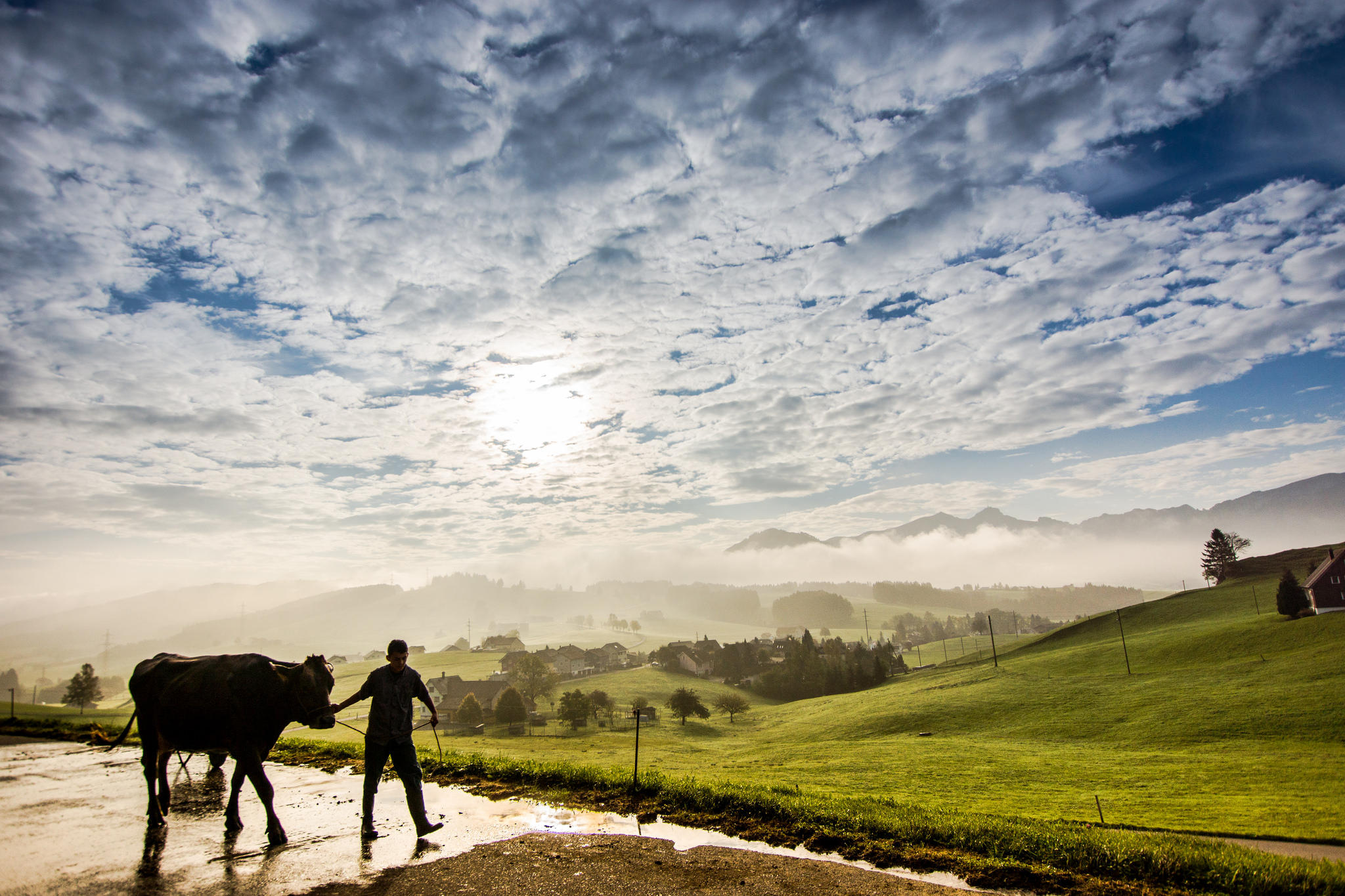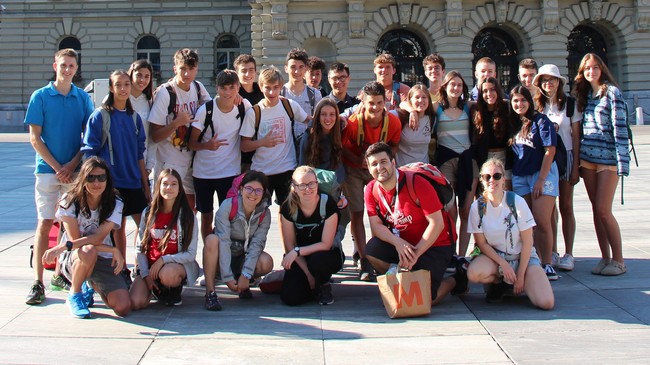
Swiss to vote on banning factory farming

Voters will have the final say on a people’s initiative aimed at outlawing large-scale livestock production in Switzerland.
Campaigners on Tuesday submitted more than 100,000 signatures for their proposal forcing a nationwide ballot on the issue.
They argue that intensive animal farming is cruel and contributes to climate change, as well as hunger and water scarcity.
“Switzerland imports 1.2 million tonnes of animal feed every year to produce the necessary quantity of animal products,” said Vera Weber, president of the Franz Weber environmental foundation.
The allianceExternal link also criticised the conditions animals are held in intensive livestock farming.
“Fifty percent of all piglets raised in Switzerland are slaughtered without ever seeing the sky,” Meret Schneider of the animal rights think-tank Sentience Politics told the Swiss news agency, Keystone-SDA.
Swiss agriculture initiatives
The initiative was launched 15 months ago and is supported by an alliance of animal rights groups, environmental organisations and the Green Party.
Parliament is due to discuss the initiative before the government sets a date for a nationwide vote on the issue.
The proposal is the latest in a series on Swiss agriculture. Last year, voters rejected an initiative to encourage farmers not to systematically de-horn their cows and goats.
They also threw out separate proposals aimed at promoting ethical standards in food production and boosting local farming.
Two initiatives on the use of pesticides in agriculture, will also go to a nationwide vote in the near future.

More
Capturing the beauty of Swiss farming

In compliance with the JTI standards
More: SWI swissinfo.ch certified by the Journalism Trust Initiative
















![The four-metre-long painting "Sonntag der Bergbauern" [Sunday of the Mountain Farmers, 1923-24/26] had to be removed by a crane from the German Chancellery in Berlin for the exhibition in Bern.](https://www.swissinfo.ch/content/wp-content/uploads/sites/13/2025/12/01_Pressebild_KirchnerxKirchner.jpg?ver=cb688ed5)














You can find an overview of ongoing debates with our journalists here . Please join us!
If you want to start a conversation about a topic raised in this article or want to report factual errors, email us at english@swissinfo.ch.